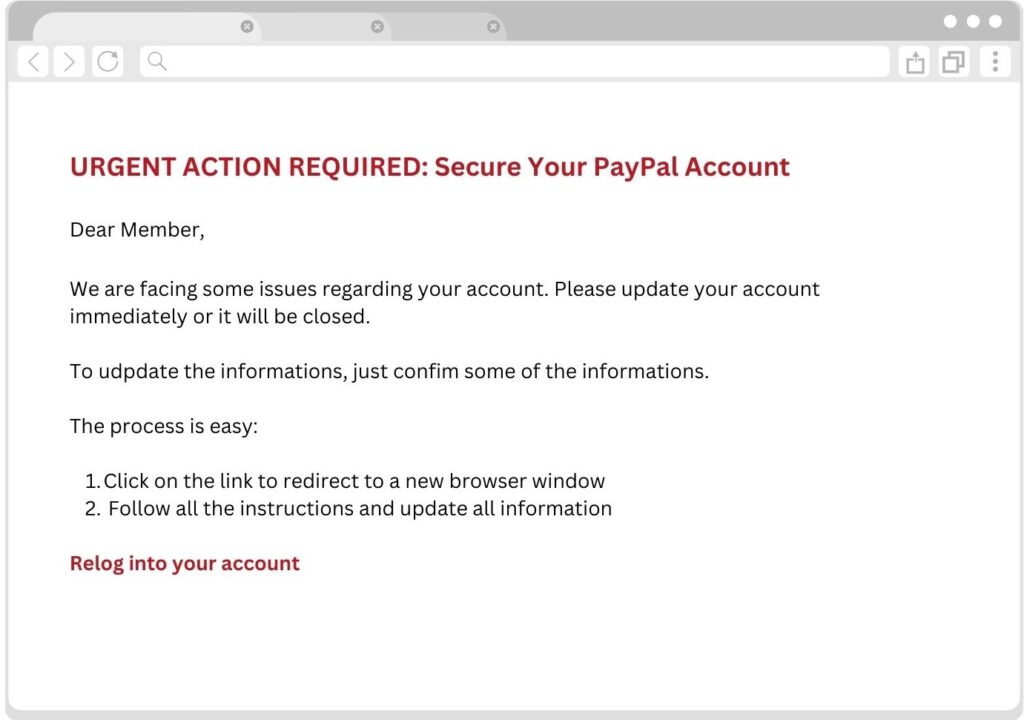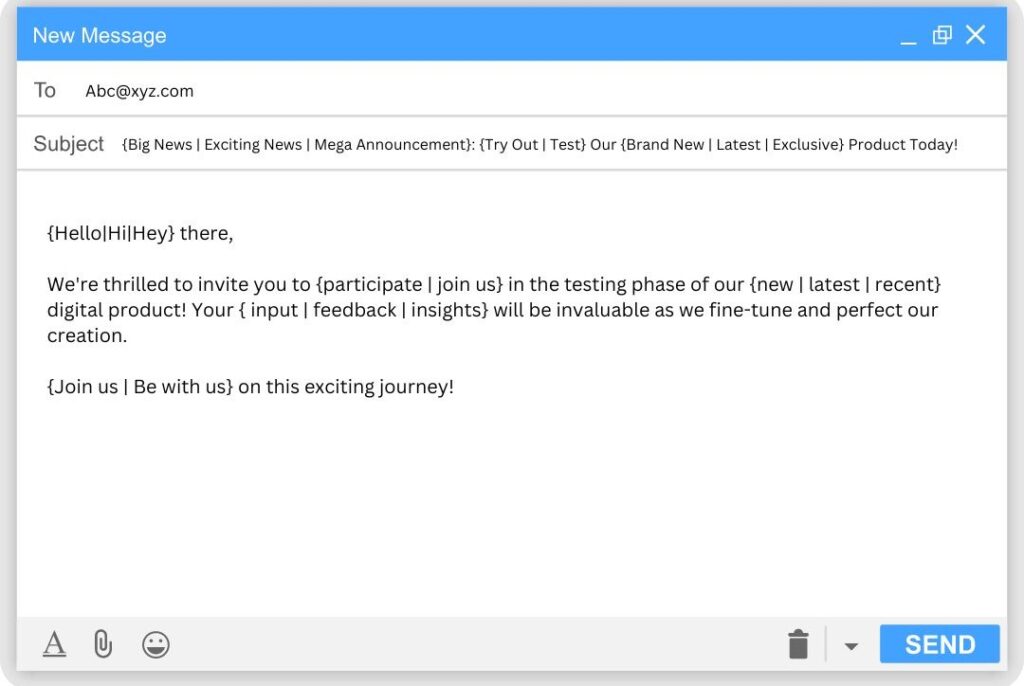Cold emails offer a powerful way to connect with your target audience and boost your business. But did you know that sending unsolicited emails could land you in hot water? Often mistaken for spam, these emails can lead to legal issues if not handled correctly. In this post, we’ll explore 4 essential strategies to ensure your cold emails stay compliant and effective. Don’t risk your reputation—learn how to email the right way.
Is this a legal practice on the part of your business?
There are no legal issues with sending cold emails to potential customers, which falls under unsolicited emails. However, not every unsolicited email is a cold email, and there are specific laws that differentiate a cold email from spam.
We’ll talk more about the laws regarding cold emails and spam. Also, the implications that your business might face. So, let’s dive into the further discussions.
Unsolicited Emails Explained: What You Need to Know
On average, a user receives 100-120 emails per day. It involves multiple email accounts of the same user. That said, most of these emails aren’t supposed to be received by a user in the first place.
These emails are identified as unsolicited emails. All types of emails not opted in by the users to receive them can be classified as unsolicited emails.

That said, all these emails are sent out in bulk. In between these, specific types of emails are legal, and others are flagged as spam. Let’s explore some of these unsolicited email types below:
Understanding Commercial Emails: Compliance and Best Practices
Advertising emails businesses use to promote their product and services to prospective leads are considered commercial emails. However, commercial emails can be both solicited and unsolicited.
The solicited emails are the ones for which you sign up. Meanwhile, the advertising emails that are sent to you without your consent are unsolicited ones. However, there are mostly no legal implications regarding unsolicited commercial emails.
Spoofing Emails
These emails are mimics that impersonate a legitimate brand and send you emails. You often have difficulty determining whether the emails are real or scams.
Some common elements in these types of mail include payment requests or emails requesting password reset. These are often deceptive and are executed mimicking large corporations like Apple or Microsoft. That said, these emails are illegal in every aspect.
Fake Tech Support
Often, emails tell you that your device has a technical issue or any bugs prevalent. Then, there is a link to click to resolve the problem or a number you must call. In addition, these emails are treated similarly to the spoofing emails sent from big corporations. These are outright illegal, and the primary goal of these emails is to access your device or data through another remote computer.
Phishing
It’s among the most common ploys to trick people into sharing sensitive information. These unsolicited emails prompt website logins and, most of the time, steal credit card information. It’s more like a cyber-criminal activity through which you can get affected.
FURTHER READING- Most Common Cold Email Mistakes: 7 Mistakes To Avoid
Laws Regarding Unsolicited Emails
You can legally send unsolicited emails to the target consumers of your email campaigns. But there are several ground rules that you must abide by.
It is never an issue to send unsolicited marketing emails, but not maintaining specific guidelines would result in heavy penalties. These guidelines are well explained in the CAN-SPAM Act.
What Is The CAN-SPAM Act?
The CAN-SPAM Act stands for Controlling The Assault Of Non-Solicited Pornography And Marketing Act. In the U.S., this law was passed in 2003 to regulate email sent by businesses and marketers.
The act consists of specific regulations and guidelines that email marketers must follow. Some of the significant regulatory practices are listed as follows:
- Emails under the campaign should be identifiable as advertisements in the communication
- There should be the usage of non-deceitful Information in the header and body of the email
- The subject line of the content should complement the things in the mail body.
- There should be a viable method for the recipients to unsubscribe from receiving the emails.
- Opt-out requests by the recipients should be executed within 10 days
- Valid postal things should be included in all the mail.
- If third-party emails should be ensured, compliance
What Are The Penalties Regarding Unsolicited Emails?
The fines or penalties for spam emails can be hefty at times. These penalties are accounted for separately and have variable penalties depending on the type of violation. That said, if you violate the regulations relevant to the CAN-SPAM Act, the penalties can sum up to $51000+ just for a separate mail.
Some of the activities that you must avoid to evade fines are as follows:
- Getting access to Someone’s device without authorization
- Fake information to register multiple email accounts
- Misleading people through the message you sent
- Sending unwarranted sexually explicit stuff
- Using the advantage of the open proxies without any permission
Things To Do To Avoid Sending Unsolicited Emails
Following every other law and binding can be tough at times. However, some rules of thumb should be followed to avoid any kind of hassles in the future. Let’s have a look at those below:
Flexible Opt-Out Option
There should be a provision for the audience to opt out of receiving cold emails. That is why the process of unsubscribing should be made easier for everyone receiving the email. It is the most straightforward way to be user-friendly. You should make the opt-out option visible so the audience can see it easily.
Precise Subject Line
The best open rates usually depend on how hooking the subject line is. But that doesn’t mean you can mislead the audience for the sake of hooking. Trying out subject lines that are bad in taste or disgraceful violates the CAN-SPAM Act.

The subject lines should be honest and clear. It must align with the message in the mail body as the subject matter. Simple lines that go with the core goal of your email should be your approach.
Include Organization Details
Another way to comply with the CAN-SPAM Act is by adding details about your organization on your mail body. The best approach is to include the company address at the bottom of the email.
It eventually helps to build trust and portray the legitimacy of the organization. Also, you can add the registration of the post office box only if you have registered with the U.S. Postal Service.
Record Consent
Your business must record the consent of the individuals you plan to engage through cold emails. It allows you to safeguard your business from any potential violation that will result in penalties. You should keep a separate customer data platform or documentation enabling this process.
FURTHER READING- How to Send Bulk Cold Emails Without Getting Blacklisted
FAQs About Unsolicited Emails
What is a unsolicited email?
An unsolicited email, commonly referred to as spam, is an email sent to a recipient without their consent or prior request. These emails are often unwanted, intrusive, and sometimes even dangerous. Typically sent for commercial purposes, such as marketing, they can flood inboxes in large volumes, often originating from botnets or networks of compromised computers.
Is It Illegal to Send Unsolicited Emails in California?
Yes, sending unsolicited emails is illegal in California under the state’s anti-spam law, detailed in California Business and Professions Code Section 17529. This law prohibits sending specific types of emails, including:
1. Email advertisements sent from California or to a California email address.
2. Emails sent to addresses that have been posted online.
3. Emails generated by combining numbers, names, and letters.
4. Email advertisements containing a third-party’s domain name without their permission.
5. Email advertisements with falsified, misrepresented, or forged header information.
Is It Illegal to Send Emails Without Permission?
The legality of sending emails without permission varies based on the type of email and the laws in the recipient’s country. In most developed countries, businesses are required to obtain explicit consent from recipients before sending marketing emails. This consent must be clear, active, and should include an option for recipients to opt out. However, implied permission might be granted in cases of an existing business relationship, such as with customers, donors, or members of a community.
Can You Send Emails Without Consent?
Yes, but only under certain conditions. Implied permission applies when there is an existing business relationship—like with current customers, donors, or active members of a community. If there’s no implied permission, you’ll need explicit consent before sending any emails.
Is It Illegal to Send Random Emails?
Under the CAN-SPAM Act, which governs commercial email practices in the U.S., sending random or unsolicited emails is tightly regulated. This law outlines the requirements for commercial messages, gives recipients the right to opt-out, and imposes strict penalties for violations. The Federal Trade Commission (FTC) enforces these rules to ensure compliance.
Is It Illegal to Send an Anonymous Email?
Sending anonymous emails is not inherently illegal, but it can lead to legal consequences if the content is defamatory, misleading, or causes harm. For instance, sending an anonymous email accusing someone of infidelity could result in legal action if the information is false and damages the recipient’s reputation. Additionally, anonymous emails could be considered harassment or stalking in certain situations.
Is It OK to Send Unsolicited Emails?
In situations where consent isn’t required, cold emailing can be legal. However, it must adhere to relevant regulations to avoid being classified as spam. This is why seeking legal advice is crucial before engaging in cold email campaigns.
How to Stop Unsolicited Political Emails?
You can usually stop unsolicited political emails by unsubscribing through the provided link in the email, marking them as spam, or setting up email filters to block such messages.
Final Thoughts about Sending Unsolicited Emails
Businesses must be well aware of the regulatory practices of email marketing. Keeping updated with the rules and directives helps businesses avoid privacy issues or data breaches. That is why you must familiarize yourself with all these regulations, which would eventually help you comply while running all the professional email marketing campaigns.
Moreover, if you want to build and maintain a positive brand image, you must cater to all the legal frameworks and build long-time rapport with the audience.


